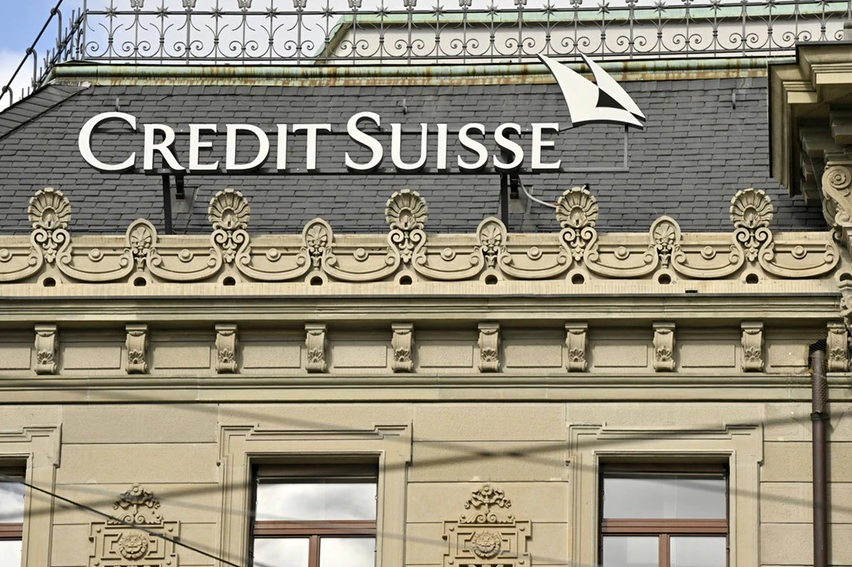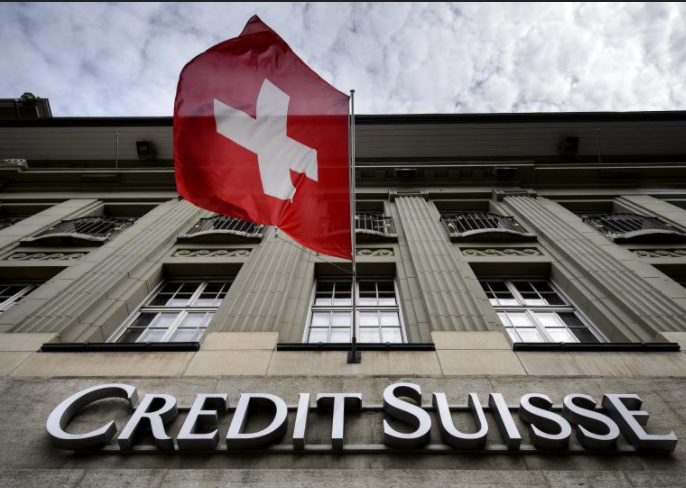State Street denied the Credit Suisse takeover rumours last week. © Keystone / Walter Bieri Switzerland’s typically liberal mergers and acquisitions market might make an exception for such a national institution. There are few statues of heroes in downtown Zurich. But of those that exist, by far the grandest is that of Credit Suisse’s founder, Alfred Escher. It is hard to imagine a foreign acquirer buying such a national institution, though Credit Suisse’s shares rose sharply on Wednesday after a post on the Inside Paradeplatz blog suggested US-based State Street was planning a takeover bid. State Street later denied the story. On paper, a foreign acquisition of the embattled bank should be possible. “The current set-up is an open market with very limited
Topics:
Swissinfo considers the following as important: 3) Swiss Markets and News, 3.) Swissinfo Business and Economy, Business, Featured, newsletter
This could be interesting, too:
RIA Team writes The Importance of Emergency Funds in Retirement Planning
Nachrichten Ticker - www.finanzen.ch writes Gesetzesvorschlag in Arizona: Wird Bitcoin bald zur Staatsreserve?
Nachrichten Ticker - www.finanzen.ch writes So bewegen sich Bitcoin & Co. heute
Nachrichten Ticker - www.finanzen.ch writes Aktueller Marktbericht zu Bitcoin & Co.
Switzerland’s typically liberal mergers and acquisitions market might make an exception for such a national institution.
There are few statues of heroes in downtown Zurich. But of those that exist, by far the grandest is that of Credit Suisse’s founder, Alfred Escher.
It is hard to imagine a foreign acquirer buying such a national institution, though Credit Suisse’s shares rose sharply on Wednesday after a post on the Inside Paradeplatz blog suggested US-based State Street was planning a takeover bid. State Street later denied the story.
On paper, a foreign acquisition of the embattled bank should be possible. “The current set-up is an open market with very limited restrictions and regulatory reviews regarding foreign investments,” said Astrid Waser, a partner at Swiss law firm Lenz & Staehelin. “There is sector-specific legislation that limits foreign participation in key sectors, for example in the electricity sector, but otherwise there is very little investment control compared to other European jurisdictions.”
An approach on Credit Suisse, however, would attract special scrutiny. Not only is the bank of systemic importance in Switzerland and Europe, but it helped build Switzerland’s railways, bored the Gotthard tunnel and created the Swiss pension and insurance market.
“Credit Suisse is definitely not just another bank,” said Vera Eichenauer, senior researcher at the KOF Swiss Economic Institute at ETH Zurich. “It has lost a lot of popularity with all the scandals and so on, but most people blame that on it having become too international.”
Bailout memories
One political consultant who works closely with Switzerland’s biggest banks warns that the legacy of the 2008 crisis, when Bern was forced to intervene in the financial sector, still looms large for many politicians. “There’s no one in government or in parliament who would want to save another bank. So they [would] want their say, you can be sure of that,” the person said.
A potential end to Credit Suisse’s independence would also play straight into the middle of a continuing legislative discussion in Bern: at the end of March, Swiss parliamentarians voted in favour of the “Motion Rieder”, mandating the Swiss government to create a new law allowing for political intervention in takeovers of Swiss businesses by foreigners.
There is little prospect of the mooted legislation coming into effect before 2024. But a foreign bid for Credit Suisse could supercharge the topic.
Under the outlined legislation, a bid for Credit Suisse would almost certainly end up being decided upon in secret by the seven-person Federal Council. A deciding factor could be the degree to which a bidder abides by the same culture of banking secrecy as Switzerland.
Sanguine
Others in the world of Swiss mergers and acquisitions are more sanguine.
“Our expectation is that the draft legislation… will enter into force… but it will not alter the traditional openness of the Swiss market for foreign investments,” said Tino Gaberthüel, partner at Lenz & Staehelin.
Existing sector legislation – in the case of a financial transaction, Switzerland’s Banking Act – was likely to continue to be the most important consideration in dealmaking, Gaberthüel said.
Under that, the market regulator Finma would play a crucial role. Though how it would adjudicate a takeover of the country’s second-largest lender would be highly dependent on the nature of the transaction: there is no precedent.
Finma’s principles are broadly in line with fellow western regulators, but it takes a stringent approach. A bidder, or even a co-bidder, from somewhere like the United Arab Emirates, China or Russia, might struggle to meet its requirements.
Finma would not seek to obstruct any deal on principle, one Swiss economic official said, but it would take an extremely conservative stance. And it could take months, to decide: “It would be an extremely technocratic process… there will not be many prepared for that.”
Copyright The Financial Times Limited 2022
Tags: Business,Featured,newsletter









